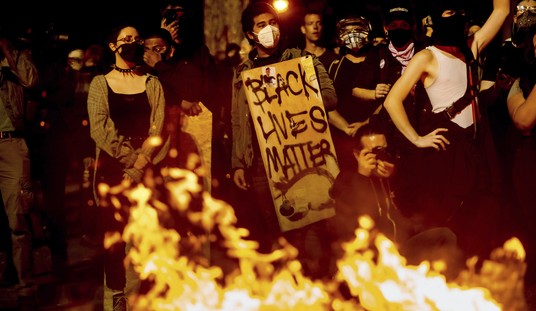Not that this is an unreasonable fear, of course, but it presumes that the Democratic base has enthusiasm to lose. Even when they took a momentary lead in Gallup’s generic Congressional ballot last month, Democratic voters trailed the GOP in enthusiasm by double digits and at one point by almost twice their level. Still, what few enthusiastic voters still remain probably won’t get warm fuzzies about being accused of a drug stupor, as Howard Dean put it:
“The problem is the enthusiasm gap,” said ex-VT Gov. Howard Dean, in an interview withThe Hotline this morning. “If you treat people like that, they’re not likely to respond in a warm and fuzzy way.”
“Part of it is the kind of in-your-face attitude of the White House staff, and I’m not just talking about Rahm,” Dean added. “I think it’s pretty universal.”
Well, that’s a candid admission from the former party chair. Republicans on Capitol Hill have complained about that very attitude since Obama took office, and certainly since his “I won” moment in the Porkulus debate, three days after his inauguration. Until now, Democrats have insisted that the Obama White House has been the model of cooperation … until this blast from Gibbs.
Mainly, though, the problem is that the special interests haven’t been stroked enough by the administration:
But, Dean and others said, different groups are angry for different reasons. Gay rights activists have interrupted Obama at fundraisers before, demanding action on Don’t Ask, Don’t Tell. Unions have voiced their displeasure with one of the WH political department’s picks, running millions in ads against Sen. Blanche Lincoln (D-AR). And groups that supported health care reform grudgingly backed the final legislative product, even though it wasn’t perfect.
“It’s not one group of liberals or progressives. There are gradations of them, and some of them are really upset and some of them are modestly upset,” Dean said. “While the president certainly hasn’t done things as well as we might have liked, in terms of health care, in general, he has a pretty good record. … The financial regulatory bill wasn’t everything, but it was a very good step.”
That could be the entire idea, Reid Wilson explains, and some Democrats wonder if this outburst from Gibbs wasn’t part of a deliberate strategy to marginalize the base:
Other Dems questioned whether the effort to take on liberals wasn’t part of a grander plan, one in which Obama picks a fight in order to differentiate himself. If Obama is feuding with liberals, the logic goes, he can’t be one himself. Party officials hope independent voters buy that line, then give Obama a second look.
Wilson also points out that Obama has a track record of this kind of distance-setting. Pro-choice groups griped about his “present” votes in the Illinois state legislature during his 2004 Senate campaign, but had nowhere else to turn in the general election. One insider quoted by Wilson notes the strategic pattern:
“Funny how he convinces people he was for them before he was against them and vice versa,” the insider said.
None of this, however, helps Democratic turnout in 2010. If indeed this was a deliberate strategy, it amounts to tossing his party under the bus in an attempt to shift public ire onto Congressional Democrats and off of him in order to salvage the 2012 election. That strategy might work for a legislative election, but it’s not going to get anyone very enthusiastic about Obama’s leadership qualities, either.








Join the conversation as a VIP Member